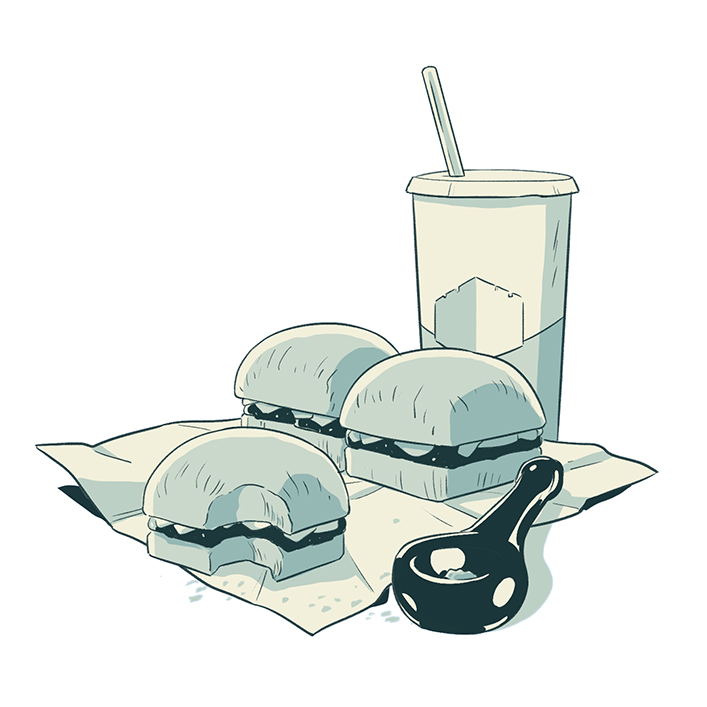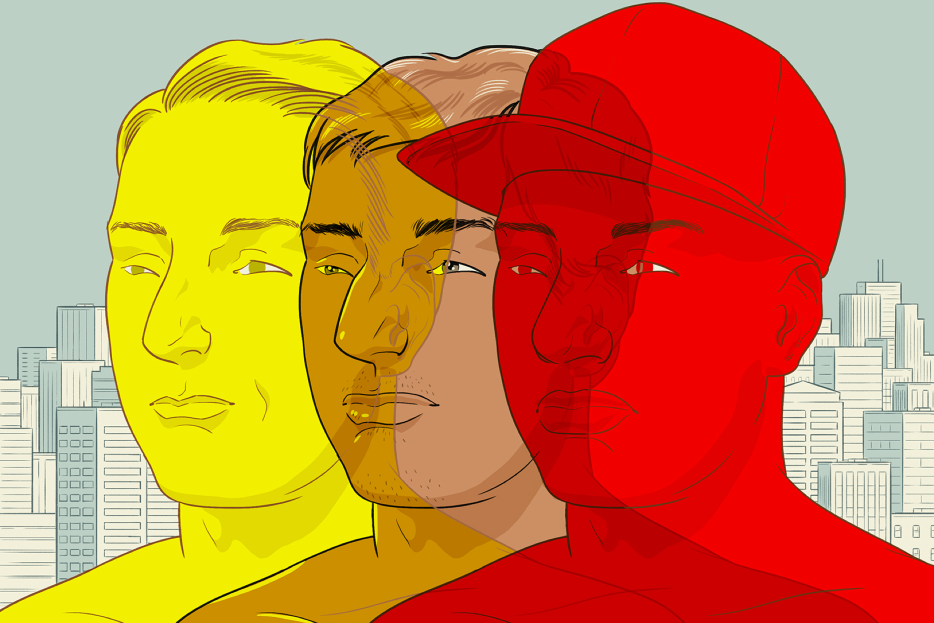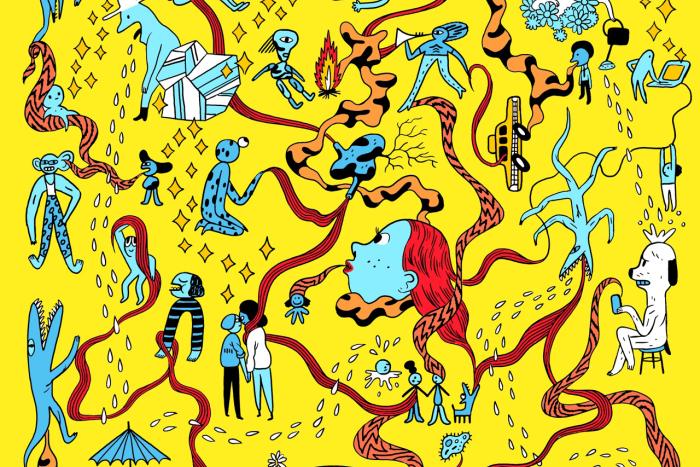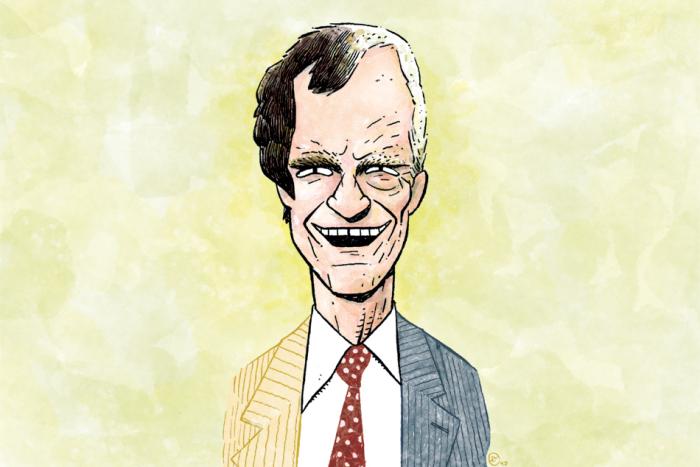A few weeks ago, I ran into an old high school friend in Toronto’s PATH, a winding underground community of interconnected shopping malls, food courts and subway platforms. The PATH’s lighting is all sharp fluorescents, and we couldn’t hide how we had aged in the decade since we’d last seen each other. We sat down to chat over coffee, and it only took a few minutes before she said to me, “You have such a White personality!”
I was stunned, but maybe I shouldn’t have been. This type of provocation was typical from the other Brown people I grew up with in North York, the ones who moved onto careers in IT, business, or the generally nebulous designation of “professional.” I asked her if it was because I was dating a White girl, and she said no, she’s used to that, her brother is doing that. I pressed—what was it that made me “White”? I speak Urdu, my parents are Indians, and were working in Saudi Arabia when I was born. She couldn’t articulate a clear answer. My career choice, my traveling—that “reading on your lunch break” thing—it was all just considered “White.” I tilted the book so that she could read the spine: How to Fight Islamist Terror From the Missionary Position by Tabish Khair. It seemed like a fairly Brown choice.
Later, she performed a spectacle I’m used to from White people: she asked me if I knew the Urdu word for “mango.” I was used to White people’s casual barrage of basic ethnicity-related questions, but not from a Bengali. I was nervous being interrogated; Urdu does not come quickly to me unless I’m in India and have been speaking it regularly. I couldn’t recall the word.
What was missing from the conversation was the usual menacing tone I get when Brown people try to tease out how Brown I am. She spoke of my traveling and writing with admiration, that it was unusual for “us.” That type of Whiteness was good in me. Brownness has become a regular part of Western interrogation—what is a good Brown? What is enough Brown? Is it the kind that resembles Whiteness with just a bit of color thrown in? Republican governor Bobby Jindal is a perfect example for many: he has assimilated deeply into White, American, conservative culture, and makes continuous, painful attempts to isolate his darkness from himself. In his quest for power he has rejected the “Indian-American” tag, saying, “My dad and mom told my brother and me that we came to America to be Americans. Not Indian-Americans, simply Americans … If we wanted to be Indians, we would have stayed in India.” The core tenet of this type of assimilation is that Brownness is foreign and will never belong in the West, past the occasionally chic set of thick eyebrows and appreciation for our spicy foods. Our Brownness does not belong here, we’re told over and over again, until it is bleached enough to resemble everyone else’s version of acceptable Whiteness.
*
I remember being 12 and staring into a floor-to-ceiling mirror when I first realized there was a glitch between my inner and outer self. This can’t be me, I thought, This must be a dream. In the real world I must be blonde and blue-eyed, not dark-skinned and bushy-haired. My eyelashes—long—were already renowned by old White ladies, but I was willing to trade them for what I assumed had to be my real alabaster appearance.
Back then, it seemed as if Brown culture would not be given a present tense in the West. There was the pressing crush of White culture and what felt like the subversive relief of Black identity. You had to take one or the other, or mingle them, to find a way of being. The closest we came to a current sense of self was made simple with bad language—either you were a FOB (Fresh of the Boat, a recent immigrant who adheres to old-world practices) or a Coconut, (Brown on the outside, White on the inside) with little room to navigate between.
If they were being gentle, the perpetrator might call you an ABCD, American Born Confused Desi, a term that writer Vijay Prashad says is utilized to “emphasize to the accidental Americans that they are confused. The homeland is wielded by all these people against the next generation, who are forced to feel culturally inadequate and unfinished.” There is also the potent White Washed, somehow stronger than Coconut, and now often lobbed at targets like the political jinns Bobby “Piyash” Jindal and Dinesh D’Souza, evoking images of a cleanse, and suggesting a total transformation away from Indianness.
The laziness of these terms leaves a confusing sting, especially since they’re used almost exclusively within Asian communities. An uncle called me a Coconut last year (a month later I was stopped at the airport for a random search—too FOB to fly). In middle school I was called “wigger” by a classmate because of my sweet white Nikes. The kid, Persian, conflated my non-existing whiteness with my apparent love for blackness and meant to hurt me; but I was elated—who doesn’t want to be black? Snapping onto “Blackness” in a sea of White culture was a common trait I noticed. In an interview with Marc Maron, Indian-Canadian comedian Russell Peters talks about calling friends back home in Brampton and dropping into Patois to speak to them. It’s not in his repertoire of comedic accents, nor does he have any direct Jamaican heritage, but in his private conversation with friends, he code-switches with ease.

The popularity of terms like Coconut and FOB reveal a group stuck in time. An essential idea of identity is that it’s fluid. Its ability to morph, and remain the same, and for these two opposite strands to remain intertwined is what makes a person recognizable. Coconut and FOB strip that and, like any slur, turn the individual into a caricature. It’s also the primary way that so many Brown kids view identity—either they are on this side or on that side. With the ties to the “homeland” cut off, and a dominant White culture violent towards any attempts at fringe identity, we’re left to rot or escape into the shelter of other groups.
Suri owes as much to Biggie as he does to M.I.A., to Punjabi songs, and to Urdu poetry. He moves from songs about the Patriot Act, to Partition, to a verse on “So New York” where he spits, “I’m so New York I still don’t bump Tupac.” While Suri talks publicly about struggling with duality, that difficulty is not present here; instead, we’re given a unified statement of a sort of Brown Male who has been run through the gamut of a post-9/11 American reality of suppression, ignorance, and racism. It knows its Americanness and Indianness and manages to hold them together without allowing one to overwhelm the balance.
Bald and Suri’s disparate works—historical research and a rap album—work together, like the two strides of identity, to weave together a phantom image of what life might be like. The power of Bald and Suri is that they both cut to the question of identity: where do I belong? Bald pries apart history to give us deep roots on this continent, while Suri recasts West and East—what we’re told are two contradictory ideas—as a cohesive whole.
*
Kumar helped set the stage all those years ago. Aziz Ansari, Kumail Nanjiani, Mindy Kaling—the list of Brown actors engaging with Brownness in a variety of ways has been growing. Pop music too, in the 2000s, began opening up as I got old—the influence of M.I.A. on new artists Ben Khan, Jai Paul, and Future Brown is monumental. The chain of influence is difficult to parse, but what’s notable about the early figures is their willingness to take ownership of spaces previously denied to them. Just like the early Muslim peddlers who saw a way to take advantage of the American capitalist enterprise, these artists made established Whiteness work for them. There’s never a right time to ask for space—these artists are taking it.
The disastrous adventure of being out here in the West is levelling out. What was revelatory to me about my friend’s comments about my “Whiteness,” tucked away underground in the Financial District, was not its content, but that I wasn’t bothered. I moved past it. I claimed an existence of my own.






